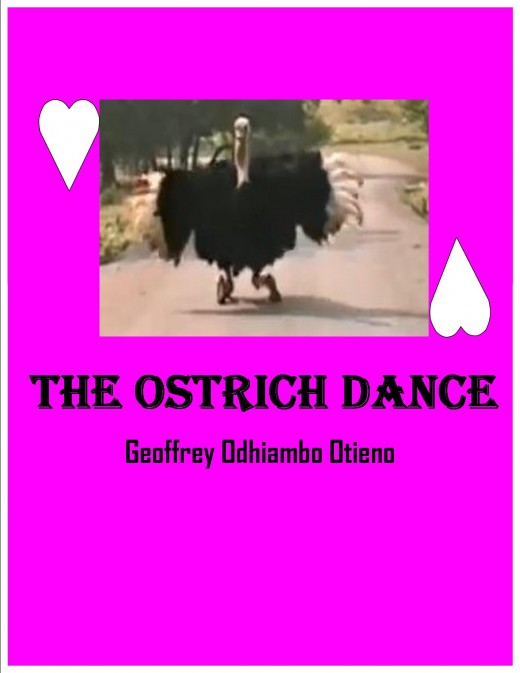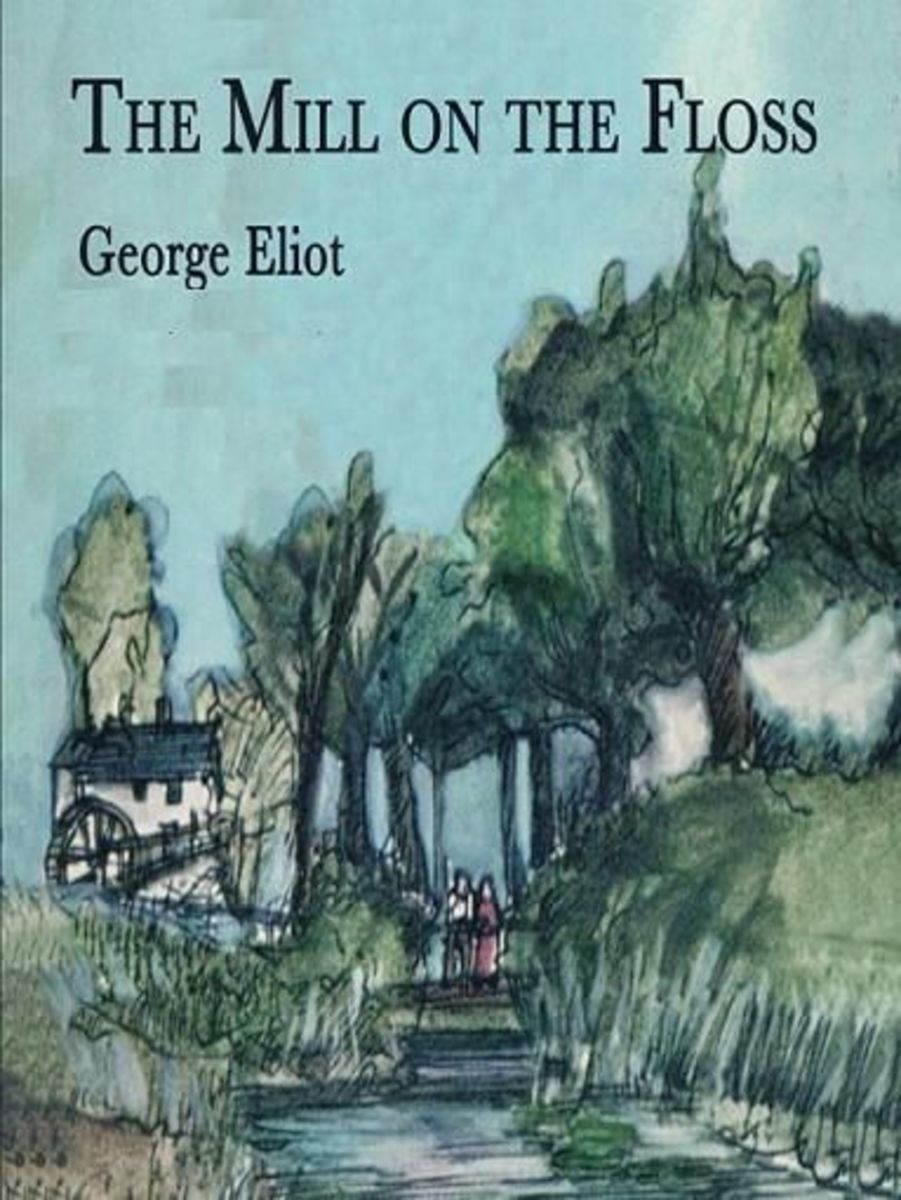Novel: The Ostrich Dance - Chapter Six

Chapter Six
The Home
At last the convoy arrived at the gate of Par McOpondo, the home with a long history. Caaephas’ last reverie had made him miss almost everything they passed on the way. Their arrival at the gate was heralded by the sudden turning of the cars to the left. On both sides of the murram road stood rows and rows of cypress trees. The line on the left suddenly broke, there was a gate, then more trees. Though he had last been here five years ago, it seemed to be an eternity.
Alert now, he realized that all those cows, warrior boys, musicians and dancers had disappeared into the compound still concealed from his view. The two Volvos ahead had also been swallowed by the gate. Then the Mercedes entered too.
There was total chaos within. Everyone ran in every possible direction, wailing and waving twigs. The cattle also ran helter-skelter. Suddenly, a black, slender girl, with tear-lit eyes, ran in front of the Mercedes. The driver hit the brakes on the nick of time. The girl stumbled and fell, her skirt momentarily blowing up. The people around stopped and held their breath. The other running people bumped into some of them. Panic began to spread like some slow electric current through the crowds. More and more people stopped then pushed forward craning their necks.
At length, the girl got up, somewhat crestfallen, straitened her skirt, picked up her twigs, took one shy glance at the car and moved off. The car surged forward. However, it took much longer for people to sort out what had happened, in their humanly slow brains, which had been further dawdled by superstition. As word spread, some versions had it that a girl had been knocked down by the Mheshimiwas car. They wondered what this portended. Caephas only heard this version one month later. For the moment, he forgot the incident completely. However, he did not forget the eyes of that girl. They were eyes like he had never seen before.
Important Human Cargo
The drive curled round the house, crossed between it and the swimming pool and ended next to the fence. Oliver, the driver, parked next to the other two Volvos in a square lot. All the cars behind were directed a different way after dropping their important human cargo. They had to make a U-turn to a parallel lane in order to park on the other side of the house, next to the same old horse stables by the gate. The only other exceptions were the two vans. One went straight into the garage at the basement of the house, while the other, the hearse, headed for the dais built next to the pool facing the wide expanse. That is what the previously bushy part of the compound had been reduced to, a wide expanse of well manicured grass, all the way to the river.
Caephas, six- feet- eight, brown hair, grey eyes, white skin and grey suit, headed for the dais too; totally unfeeling all the VIPs around him. The people still running all over the place, their heads bobbing up and down below him, did not capture his attention either. When he finally got to the dais, he saw that there were three huge canvas tents, erected such that one was in the middle and the other two on the wings, at obtuse angles. Each housed a few hundred chairs, some of which were already occupied by villagers who needed to feel an obviously short-lived sense of importance. Nevertheless, none of them had dared venture onto the central tent behind the canopied rostrum that was the dais, directly in front of which was mounted the just off-loaded casket. People had already been formed into a cue and were viewing the body in turns before running off, wailing, as if they didn’t believe their eyes.
Caephas took his place at the central tent, and only then did the other VIPs begin to sit around him. Everyone else began to settle down gradually and for the first time, the totally deafening noise slowly subsided. People discovered their relatives and started to shake hands, hug and even kiss (depending on which side of the divide they presently resided in). Smiles begun to replace the tears and twigs were speedily discarded. People began to congratulate themselves for the resounding reception, or romo, they had accorded their departed son. Only the diehard mourners kept on, more and more on the periphery, All these activities gradually died down too and everybody resorted to staring. Their focus was not the casket, but Caephas, seated calmly on behind dais.
The Cortina
All of a sudden, the old Cortina that had accompanied the hearse all the way from Iborian broke the settling calm. It drove around the dais to the left, cut through the crowd and screeched to a halt next to the mounted casket. Everyone gasped, wondering how it had passed the strict security cordon, mounted by the army and police personnel, which firmly directed the vehicles.
A tall, elderly, stately woman, in a black skirt suit, got out of the car screaming like a matriarch elephant. She jumped the orderly cue to the casket at a run and threw herself on it. It took four self-appointed orderlies to wrestle her off it and lead her towards the central tent. There she sat sobbing. Someone asked her for her car keys and she threw them wildly at him, resuming her sobbing. He drove off her car to park it.
Now Caephas had two faces persistently revolving in his head, constantly intruding into his thoughts. The two faces, one of the girl who had fallen in front of his car, and the other of the woman who had intruded in a Cortina; just refused to fade off like the myriads of other faces he had seen. He was trying to take in his surroundings as fast as practically possible. He thought he could see what had been left undone so he could do it. Yet he kept on drifting back to these two faces, for no apparent reason.
Anyway, as far as the eye could see, there wasn’t much that was left out. The chairs, obviously borrowed from schools and churches around, seemed to be sufficient. The public address system, actually a local mobile disco, looked good enough. He did not know what would happen in case of rain, but there was no sign of clouds in the sky. The rains around here came in March-April and December-January, if he recalled well. Therefore none was expected this September, but there were always flash downpours in this part of the world.
The Relatives
Soon, people started shaking his hand and introducing themselves. He remembered neither their names nor their faces. So far he could only recognize faces on the funeral committee, made up mainly of politicians and business people, who had arranged everything up to this moment. The others remained strangers even after the hurried self-introductions. He so far knew the City and not the Village. Now he had two feminine faces from either side to think about, which so far had no names attached to them.
“I’m your distant uncle…”
“We went to school with your father ……”
“I was his first houseboy. You were so young then…..”
The introductions were endless and needless. Someone must have noticed his discomfort and stopped the flow of humanity. Caephas noticed that there was a large mass of village people standing and staring at him uneasily, as though they wanted to approach but were unsure. Confused, he caught a glimpse of Major Phillip Ojiem of the Aynek Army, who was a member of the funeral committee, rushing off in some direction. He called out to him and tens of other eager voices carried on the sound. A tall, black, stout, middle-aged Major Ojiem, in full combat gear, came to him in a rush.
“Yes, ma man,” his voice was deep.
“I wish to ask you something.”
“Please ma man.”
“What’s with all these folks? They are just staring at me and chatting as if something’s up.”
“Oh, they are your relatives, at least some of them. They would like to come and say hi, but they do not speak English…..”
“Ah! I see, but I speak Onagi quite fluently.”
“Ok then, let me set them free.”
“No! No! Major. Don’t tell them yet. I need to go into the house and take a shower before I can talk to them.”
“Fine. Follow me.”
He was certainly used to giving commands. As they took off, someone in the crowd asked the Major in Onagi where he was taking him.
“He will be back in a moment,” he answered moving on with Caephas in tow.
“No wonder those who have spoken to me so far have used either good or broken English,” observed Caephas as they traversed the end of the pool in long strides.
“Yap!” was the boyish answer.
The Subliming
They soon came to the kitchen at the basement of the building. The major opened the door, then he stopped dead.
Much taller, Caephas craned his neck over the Major’s shoulder and saw the appalling activity going on inside. People were pilling packets of cooking fat, sugar, spices, salt and bottles of juices, recently off-loaded from the van in the basement garage, not into the fridges and cabinets, but into little baskets littering the floor. There was a knot of apprehensive women whispering impatiently outside the open side windows. Their husbands and sons were all over the kitchen, almost fighting over the goodies.
“Oh my God!” exclaimed the Major.
“What the ….!” began Caephas.
Everyone froze, the women evaporated from the window like they were in some kind of abracadabra show.
“Get out all of you!” roared the Major in his army voice, “OUT!”
The shamefaced men rushed out of the kitchen. The Major leaned out of a window and called in one of his soldiers (who like all the others was in full uniform) manning the driveway outside. He barked instructions to him, and with a quick salute the latter took off.
Super Iborianrobbery
“I leave the kitchen for only three minutes and see what happens. Our people are apes.”
“But Major, what exactly were they doing?”
“Come on, can’t you see? They were looting, passing on foodstuffs through the window to their wives to carry home.”
“How do they do it? You mean the women don’t care about being seen?”
“Being seen? That is nothing to them. They act so busy one would think they have been sent by someone. It’s an art son, an old art. However, they simply won’t do it on my watch. I may be a Major in the army today, still I have not forgotten how I managed to join the force in the first place. It is Hon. McOpondo who got me there. I won’t stand by and watch the village scum or even the city filth, even the so called funeral committee, make a farce of his funeral. No way!”
“But… you mean even the funeral committee…But I thought those are honorable fellows; MPs, managers, chief executives…”
“Honorable thieves my son. Honorable, shameless thieves. That is all God in his wisdom blessed us with in this country. Why do you think the country’s economy is going to the dogs when we have leaders? Every grabbable thing is readily available for the basest thief who happens to be nearest. The only person who matters is he who has money, cars, food, etc. The fact that they snatched the only medicine from a dying child’s mouth to make the money does not matter. Honorable my foot! In the village they call it subliming. You sublime with everything before the next person does. In the “honorable” circles they call it grabiosis or super Iborianrobbery.” Use a pen and not a gun. Honorable, yuk! Those who are not dogs are hogs.”
“There, there now Major. Some of them are your bosses.”
“My only boss is God. Do you get it? God.”
“Yet somehow I do not get it. Don’t they realize that all these foodstuffs are meant to prepare meals for the people here, including them?”
No sense of Mathematics
The Major moved closer to him and talked in a loving, almost condescending father-to-naïve-child way.
“Listen my son. They are idiots. You surely can’t expect idiots to reason like that. First, they don’t have any sense of mathematics. Each thinks that if he takes only one kilo of cooking oil, that is all that is taken. They can’t see that when ninety-nine other people do the same, then all the hundred kilos is gone. It happened in this very village recently. When an old man called Janak Ajulo died, your late father donated three bulls for slaughter. Those who did the slaughtering sublimed with everything, in little bits, including the hides. When time for eating came, they were as genuinely shocked as everyone else that three whole bulls had disappeared while guests went hungry. Of course they did not feel guilty, after all, they had only taken a small piece.
Secondly, they believe they are the only ones who are poor, therefore, the only ones who have problems. To them, people like you have endless, limitless goodies. So for you to be a good man, you must cheer them as they take, and bring more. But don’t forget, our people are also quite proud; they can walk away from a funeral if you criticize their subliming. They believe that by walking away, they are punishing you. When they realize you don’t care wither way, they come back, with long faces, because there is nothing else happening in their boring, slow and routine lives.
So you can be sure I’m a very unpopular man around here right now. All the same, they know I don’t care.
Well thirdly, they want you to fail. So they can yap about it. All the rumor factories of idle minds are driven by talking about other people’s failures. Especially when the mongers of such rumors are too idle, shy or afraid to attempt anything themselves.”
“It’s really strange. When I arrived here the reception was so great. They were so loving, so concerned, so bitter about dad’s death, so united.”
“Don’t be fooled son. In this country, the culture of unity is a cover for something else. We cheer and hail the thieves hoping to get part of the loot. We are united in our theft. The only people who don’t seem to fit in are those of us who will not bow to such hypocritical unity.”
They Steal Your Maize at Night
At this point there was a knock on the door and the Major ushered in five soldiers. He gave them orders on how to run the kitchen from then on, and how to change shifts. He then led Caephas into the inner rooms.
The large sitting-cum-dining-room was evacuated of all furniture. Instead, all sorts of baggage and sleeping things were packed into all conceivable spaces leaving little room for walking. The Major explained to his startled companion that all sorts of relatives from far and wide slept here. They could continue to do so until after the burial. He added that local custom expected all the immediate family members to sleep her too. In this case, that was Caephas. Seeing his amazement, the Major assured him that he would sleep upstairs. To further reassure him, the Major informed him that all the valuable furniture and electronics had been moved from the room and safely locked in some of the bedrooms upstairs. No one was allowed into the upper rooms as he had a soldier guarding the stairs. Only Caephas and the usual servants would be allowed through.
Only after that did they go to the stairs, where the soldier stood guard. Caephas could not wait to get into his room, which had a bathroom ensuite. When he got into the warm shower a little later, only one thought crossed his mind.
“They can steal your maize at night, to give you a generous meal in the morning.”
Onagi Institutions
Later, refreshed and somewhat satisfied by his tour of the compound, Caephas sat calmly in the central tent. The three MPs who had accompanied the hearse stopped next to him, then sat to chat. He somehow enjoyed their chatter. It was mainly about the six main institutions of the Onagi; Maro, Or, Yuoro, Jodongo and Anyuola.
Maro the most respected of all, is a man’s mother-in-law. Such a man is only allowed to have guarded conversation with the maro, mostly in the presence of at least another person. There is to be no physical contact between him and her whatsoever, not even a handshake. Any lack of decorum or mischievous behavior in front of one’s maro or mere in plural, draws a harsh penalty in the form of fines given to the maro. Yet the opposite number of maro, that is dayo, the mother-in-law of a married lady, is regarded as the lady’s rival for the man’s love. There is little respect or distance between them. But then, any woman who sires boys and girls will be both a dayo and maro simultaneously and therefore get her due respect by virtue of being a mother of girls. Whoever said Africans do not respect women.
The second institution, Or, has two broad meanings. The most important on is the son-in-law who goes to visit his wife’s birthplace. To such an Or only kingly treatment can suffice and nothing less. It is in this institution that any Onagi man, tycoon or pauper, has an equal chance of being treated like royalty. Talk of equality.
Or in the other sense is brother-in-law. Brothers in law are considered equals, socialize freely and can even sleep under the same roof. Of course it is a taboo (Kwero) for any Maro to sleep under the same roof as her son-in-law. This applied whether in the city or village. Maro can only sleep in the house of Nyawana the parent of the Or in the village setting, and a friendly neighbor’s house, if she visits her married daughter in the city. Parents of either spouse are Nyawana to one another.
The third is the institution of love, Yuoro. This refers to a man’s sister-in-law or a woman’s brother-in-law. Such are allowed to interact freely in public and seclusion without the public raising eyebrows. The can even marry, provided that there is no interchanging of brides. A polygamous man can marry two sisters, two brothers can marry two sisters; but a man and his sister cannot marry a woman and her brother respectively. Such is Kwero.
However, Yuoro is not so much the institution of marriage. It is more the institution of Gam (match-making) to connect those who wish to marry to potential spouses. There is some significance, however, to the married lady connecting with her brother-in-law, since he is the immediate candidate to inherit her in case her husband dies.
The Country Wide Web
Migogo is the fourth institution. A Migogo is a lady already married off to some distant land who comes back to her original home for a funeral, wedding, ordinary visit or as a way of seeking a solution for her troubled marriage. Whichever the case, Wagogni, in plural, play three major roles. To begin with, they are information superhighways, a kind of country wide web (cww). One only needs to log on to cww@migogo.com to get all the rumours, true or false, or truly exaggerated, from far and wide. Of course they carry the same from their birthplace to other parts of the country, on the return journey.
Then, Wagogni set village standards. They are quick to criticize and compare. In the process, they end up stepping on the toes of their nervy brothers. But slowly, the village changes its ways. True, sometimes the standards they claim to have are not in their married homes but only in their imagination. They will criticize a married brother who has not yet bought a bed and is still using the traditional straw mat, in order to hide the fact that their husbands are just the same. Nevertheless, the scorched brother is so hurt that he secretly vows to buy a bed before the next time round.
They also soon start fighting amongst themselves, in the process embarrassing everyone with the layers and layers of negative information filed into their 100 gb flash-disk heads. Nothing bad gets forgotten in the village. It is always filed away to be used against the offending party in a future confrontation, when those who hear it file it too. All the important events of the village are thus recorded and passed down generations. No wonder Africans don’t publish many books.
Conversely though, Migogo is at her best on the day her husband and his party, come to visit. She will give her all, even physically fight, to offer the Or top treatment, to avoid bad press when she goes back to her matrimonial home.
The Elders and the Clan
The fifth institution is that of Jodongo, the council of elders. These play the role of the Judiciary, Legislature and Executive combined into one. The Jodongo rely on age and wisdom. Their leadership is reinforced by the strength of Kwer (taboos) and Kwong (curses). No one wants any of those, in a society submerged neck-deep in superstition. Occasionally, on the contrary, someone goes against tradition and has to face Ajuoga (general practitioner doctor, sorcerer, medium, soothsayer, psychiatrist, obstetrician, cardiologist, pediatrician and high priest rolled into one). Ajuoga then consults his gagi (cowrie-shells) to listen to Juogi (spirits) then performs the ceremony of manyasi (cleansing) to purify the otherwise doomed individual. All this professional work comes at a cost of course. It is cheaper to simply obey the Jodongo.
Finally, there is Anyuola, the big family. It is a sub-clan consisting of several nuclear, polygamous, and extended families whose common ancestry dates back to about half-a-dozen generations. Brothers, sisters, mothers or fathers do not have to come from the same nuclear family in this system. Such concepts as cousins do not exist in Anyuola, they are simply brothers and sisters. In the same vane there are only paternal aunties and maternal uncles. Paternal uncles are simply fathers while maternal aunties are mothers. A child is brought up under Anyuola rather than the immediate family alone. Anyuola immediately intervenes in case of problems such as mistreatment, starvation or death of a parent. An attack by an external force from outside Anyuola is repulsed with immediate force by the entire clan.
Goons and Hangers-On
Having had summarized their social set-up thus, amid much laughter, the MPs Hon. Jordan Ogwal of Awusi, Hon. Ochieng Chare of Kidi Lwanda and Hon. Titus Malando of Winam, slipped away one by one to mingle with some supporters. They were accompanied by the goons and hangers-on who never left the side of politicians in Aynek. Those who had gathered around to listen actively to the conversation now sought something else to do.
Noon was approaching dangerously fast, and with it hunger. About ten cows and an assortment of goats, sheep, chicken and fish, all donated by different Anyuola form the length and breadth of the Onagi community were being prepared for mass consumption. The hawk eyed army personnel supervised strictly as volunteers did the work. Caephas himself had now shifted his attention, together with a local schoolteacher and cheerleader, Peter Alal, to preparing the program for the rest of the day. They were so absorbed in this that he did not notice the big group of his mothers, aunties, sisters, and yuoro, who had gathered once again awaiting their chance to approach the tent. Word had leaked out that he spoke Onagi and thus a new boldness had set in. They impatiently waited for Peter to leave. He soon did, approaching the cluster of microphones on a stand. As soon as he left, Caephas’ mind was immediately re-occupied by the faces of the two ladies, which kept on crisscrossing in his head, as he tried to read a newspaper.
At length, someone tapped his shoulder slightly and he looked into one of those faces.





